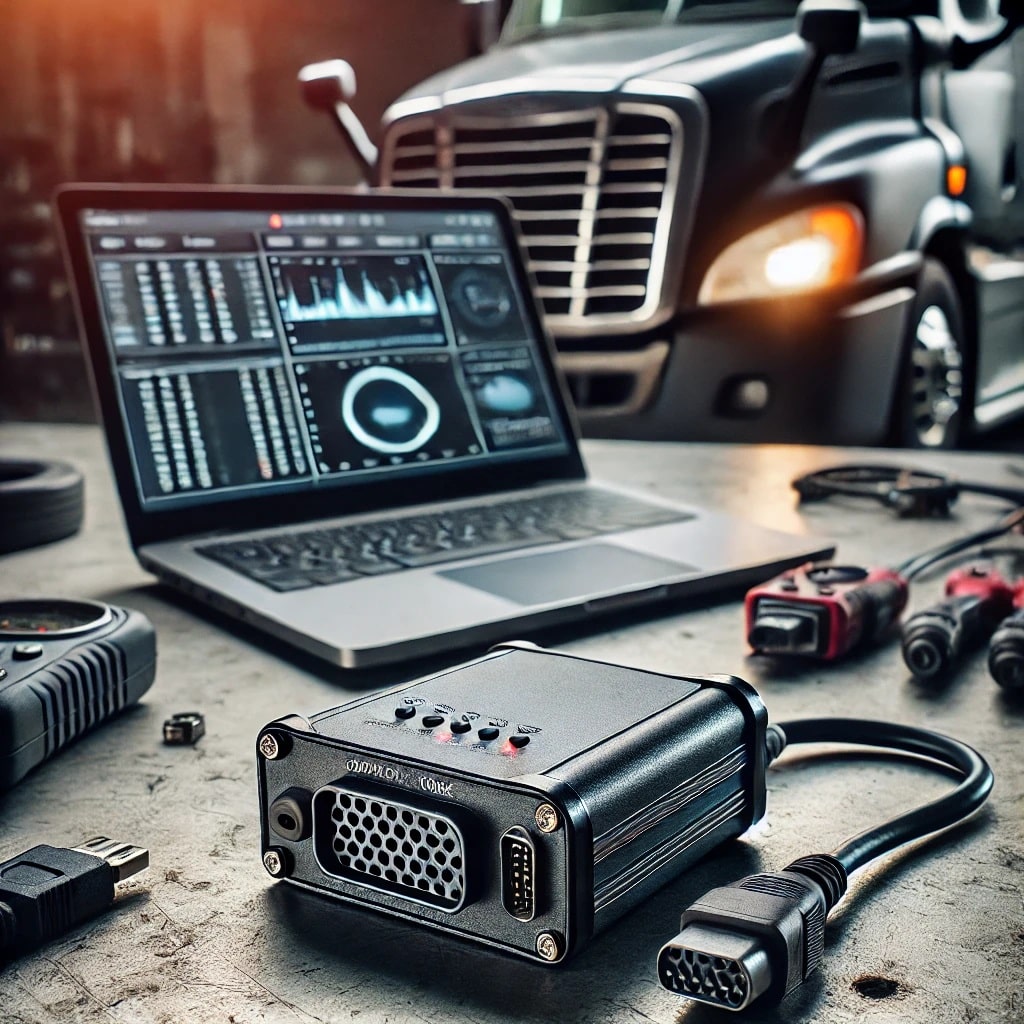A truck black box is a collection of devices that record a huge amount of information in the moments leading up to a crash or collision. Found in trucks and most semi-trucks, black boxes have become a vital element of road accident investigations that involve large vehicles.
How do black boxes work? Who has access to their data? And, can truck black boxes help you in a court of law?
We’ll cover the answers to these questions and much more in this page.
Truck’s Black Box
What is a truck’s black box? Is it the same as a plane’s black box?
As we mentioned earlier, a black box is not a single device but a collection of sensors that help monitor several areas. This information, combined with eyewitness accounts and the testimony of the individuals involved, help paint a clear picture of the moments leading up to a crash or accident.
Truck black boxes monitor data like:
- Speed at the time of an accident
- Speed history before the crash, dating back to a few minutes
- Throttle position and revolutions per minute
- Brake application and response time
- Deceleration and changes in speed
- Seatbelt usage
- Cruise control setting
- Usage of airbags and the truck’s anti-lock breaking system
- Hours of engine operation and fuel consumption
- GPS location and tire pressure, assuming the right sensors are installed
- Road grade and incline
Black Box Data: Everything You Need to Know
Before delving any further, it’s important to note that the presence of a black box in a vehicle does not help reduce the number of road accidents. Instead, crucial information leading up to the crash is stored and used to analyze accident patterns.
That said, the research conducted on the data retrieved from ECM and similar equipment can result in regulations and even new devices that help improve road safety. Not only this, but this also helps hold truckers accountable for their actions, which in theory can help reduce the number of collisions that occur due to reckless driving.
Some of the devices considered to be truck black boxes are electronic control modules (ECMs), electronic logging devices (ELDs), and event data recorders (EDRs).
- Electronic Control Modules: ECMs regulate engine function, fuel injection, and transmission, but they also record critical data like speed, throttle position, and braking.
- Electronic Logging Devices: ELDs track a driver’s hours on the road, ensuring compliance with federal regulations that limit driving time.
- Event Data Recorders: EDRs function much like airplane black boxes, recording details such as sudden braking, abrupt steering changes, and deceleration patterns. This data helps determine how a crash unfolded and whether the driver took evasive action, or if mechanical failures played a role in the accident.
When Does Black Box Data Become Available?
The whole point of having devices like the Electronic Control Module and other components of the black box is to access the data stored within them. Luckily, it only takes about 2 to 3 hours to recover important information from a black box after a crash, but this only applies if the device was not damaged during the collision and was immediately extracted from the vehicle.
Damaged black boxes can be accessed, but they need to be sent to specialized laboratories that can piece them back together. This process can takes days if not weeks and is not guaranteed to work, but there’s still a good chance that relevant information can be pulled from the box.
Who Can Access Black Box Data?
One of the biggest points against black box data is that it poses a privacy risk for drivers that are being tracked. By analyzing black box information, it’s possible to collect personal information about the drivers including their individual locations, average driving speed, and other habits while behind the wheel.
Fortunately, trucking companies have to comply with privacy laws and regulations surrounding the collection and use of this data. Legal restrictions limit who has access to this information and how they can access it, which creates a security layer against tampering or data adulteration.
Remember that this varies by state, but as long as you understand your state’s regulations you should be able to obtain and use this data.
Can You Use this Information to Build Your Case?
The information extracted from truck black boxes is extremely valuable to a court of law because it helps determine who is liable for an accident. In other words, black box data can definitely be used in court and, as a matter of fact, it’s usually one of the key pieces of evidence that you can use to build a winning case.
The reason for this is that black boxes help corroborate data and help support the truest version of the story. By reviewing the truck’s speed, braking patterns, and other pieces of information, it’s possible to piece back together the moments leading up to a crash.
Read More: Seattle Truck Accident Attorney
Contact Coluccio Law to Get Legal Assistance
When a truck or semi-truck is involved in an accident, the black box can provide clarity and shine a light on some of the events leading up to the collision. If you or a loved one have been injured or suffered any types of damages due to a truck, this information can become a crucial piece of evidence that allows you to build a winning case.
It’s important to note that the black box is not a single device. Instead, this system consists of several different pieces of equipment that monitor and control different parts of the engine. This includes fuel injection, transmission function, braking systems, traction control, and other key functions, so it gives you a comprehensive picture of the moments leading up to a crash.
Did you or a loved one suffer injuries in a truck or semi-truck accident? If so, the information on the black box may very well help you build a winning case. Get in touch with our team of experts today to tell us more about the collision and seek compensation from the responsible parties.
Read More : Why Are Semi Trucks called Semi Trucks



